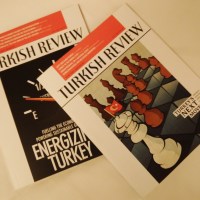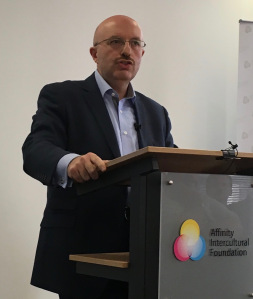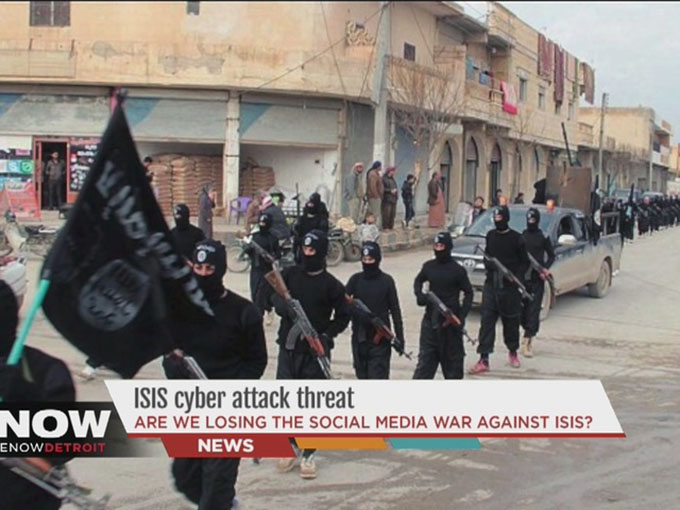By Dr Alan Knight in Sydney
Moderate Muslims were losing the media war with ISIS, according to leading Turkish journalist, Kerim Balci.
”Authentic” Muslims were losing to “radical so called Muslims” because of the obvious symbiosis between journalists and terrorists.
“Ten thousand Muslims may be doing good things but it’s not reported,” he said. “One Muslim makes something bad and its headlines!
“The voice of extremism is always multiplied through world media!” Even Muslim media were guilty of this.

Kerim Balci is editor of the Turkish Review, a bimonthly journal published by Zaman Media Group.
Balci studied physics and political science and international relations in the Bosporus University of Turkey. He has an MA from the Hebrew University of Jerusalem, the city where he served as the representative of Zaman Turkish Daily for eight years. Balci is currently a linguistic philosophy PhD candidate at Durham University. He was in Sydney at the invitation of the Affinity Intercultural Foundation.
Balci said social media could have been an alternative where “authentic” Muslims could promote peaceful Islam.
“Unfortunately, ISIS uses social media much better than us. The videos that are produced by ISIS for Youtube are much better than even the movies produced for the market in many Muslim countries”.
Mainstream conflict
Mainstream Muslim media could also find themselves in conflict with their own governments.
In Turkey, journalists had revealed the government had been engaged in secret negotiations with the Kurdistan Workers’ Party (PKK), regarded by the state and in the West as a terrorist organisation.

“There is the paradoxical situation where you are stuck between the national interest and journalistic ethics”.
Turkish newspapers published the story. The government was “quite angry” and two journalists were jailed, accused of treason.
“It’s not the duty of journalists to keep those things secret,” Balci said.
Kerim Balci
Meanwhile, some [radical] religious Muslim media branded any journalists who identified terrorist groups, as “infidels” .
“In fact one of them is sitting in front of you, ” he said with a grin. “I wrote an article calling Hamas terrorists,” Baldi said. ”And a [radical] religious paper called me an infidel!
‘More harm’
“As a religious person, I believe the terrorists are hijacking my religion and doing more harm to religious Muslims than they are doing harm to the West”.
ISIS had killed many more Muslims than Westerners.
“As a journalist, I have a duty to inform the public. But there is also an inescapable duty to educate the public about our religion.”
In this “post modern era” many people got their information on religion from newspapers.
“Those of us who cover religious conflicts are actually setting the tone for the people. We have to realise that what we say may be perceived by our readers as if we are the preachers in the mosque.”
An Armenian journalist was killed in Turkey by a “religiously motivated” nationalist young man, as a result of what he had read in a religious newspaper, Balci said.
Terrorism was too often defined as what your enemy was doing. In a mirror image of the more belligerent Western newspapers, many Muslim publications called Western actions “terrorism” while being reluctant to apply the term to Muslim atrocities.
“Suicide bombings are never OK, no matter who does it,” Balci said.
“We journalists need to be sincere, frank and consistent about the language we are using,” he said. “Language is never innocent. We have to understand it won’t stay in the newspaper. It will influence people!”
The article was first published on Professor Alan Knight’s blog Online Journalism and is republished here with the author’s permission.













































